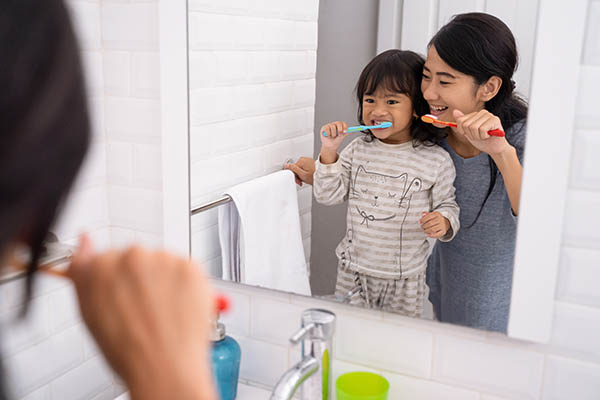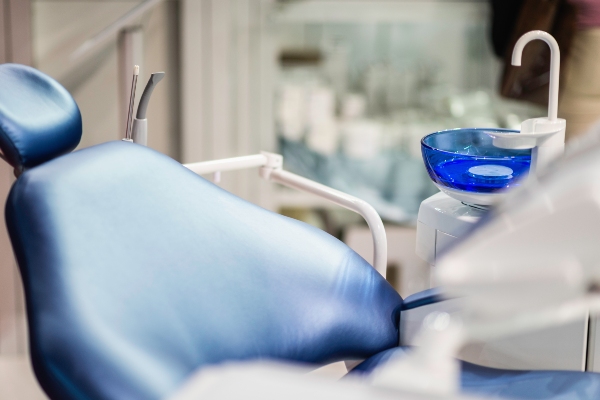 Many things go into good preventative dental care. One of the most important is brushing your teeth, but it's not something that people always do correctly. Today, we will talk about brushing your teeth correctly and why it's so crucial in preventative dental care.
Many things go into good preventative dental care. One of the most important is brushing your teeth, but it's not something that people always do correctly. Today, we will talk about brushing your teeth correctly and why it's so crucial in preventative dental care.
Using a proper toothbrush
First, you need to use an actual toothbrush. There are many options available, and it can be overwhelming - but just like anything else in life, the more expensive brushes don't necessarily mean they're better for your teeth or gums. This is especially important if you have any dental problems already because using a brush that's too harsh can make things worse.
When choosing a toothbrush, you want to look for a soft-bristled brush.
If your teeth are sensitive, choose either extra-soft or with very soft bristles - if they're painless when brushing, it means the brush is too stiff and damaging! In this case, go for even softer bristles if they're still gentle on your teeth and gums.
When brushing, make sure you don't scrub excessively or press down too hard! You only need to apply light pressure when brushing - more than that might damage the enamel of your teeth and wear it away over time. If you feel like the brush is too rough for your mouth, get a softer one.
An excellent way to make sure you're not brushing too hard is by starting at the back of your mouth and letting the bristles glide over each tooth before moving onto a new spot - if they hit your gums first, it means you might be pressing down too hard!
Your dentist can also tell how well you're brushing by looking at the wear on your teeth - if they have a ridge down the middle, it means you need to use less pressure.
The right toothpaste
Using the correct toothpaste is also essential if you want to have good brushing techniques. For example, toothpaste for sensitive teeth has a desensitizing agent that helps soothe the nerves and reduce pain. If you have strong enamel or it's not very sensitive, choose regular fluoride-rich toothpaste instead - this will help strengthen your teeth and keep them healthy!
If you're looking for extra protection against cavities (and bad breath!), choose a toothpaste that has fluoride and other ingredients like calcium, phosphates, or baking soda. The latter can help remove stains from coffee, tea, and wine - but make sure to use it sparingly because too much might damage your enamel!
Make sure not to use whitening toothpaste if you already have sensitive teeth because they can irritate. If you have no other option, go for the ones made specifically for sensitive teeth - these contain ingredients like potassium nitrate or strontium chloride to help reduce pain and sensitivity!
Flossing after brushing
You must floss every day! It doesn't matter how well or not-so-well you brush your teeth because plaque can build up even in between them - therefore flossing can remove it and prevent cavities. Flossing every day is also an outstanding preventative dental care and a way to prevent gum disease and bad breath.
If you don't want to use regular floss, there are many other options available - from traditional string-style flosses to small brushes with stiff bristles that can clean between your teeth better.
If you don't like traditional floss, there are many other options available. For example, Some electronic flossers can clean deep between your teeth and below the gum line where regular floss might not be able to reach - this is especially good for those with periodontal disease.
Learn more about proper brushing
Learn more about proper brushing techniques from your dentist. Learning the proper technique will ensure that you are taking good care of your teeth. This could help prevent diseases an infection.
Request an appointment or call Oro Valley Family Dentistry at 520-833-5261 for an appointment in our Tucson office.
Related Posts
Looking for information on preventive dentistry? Read on to learn more. A good preventive dentist can save you money on significant tooth problems, pain, and costly treatments in the future. All treatments or procedures that prevent tooth decay, tooth damage, and gum disease fall under preventive dentistry. Fortunately, when preventive dentistry is incorporated into daily…
Fluoride treatments are very important in preventative dental care. Every patient wants their dentist to provide them with all the necessary tools to keep their smile bright and white. You go to the dentist twice a year as recommended and brush and floss your teeth regularly.Doing your part in your oral care routine only goes…
Preventative dental care is an important necessity when it comes to taking care of your teeth and gums. Your dentist is your primary defense in dental health. Early detection and treatment of any oral issue are vital in keeping your original teeth looking healthy and staying strong the longest.Be sure to schedule a dental checkup…


